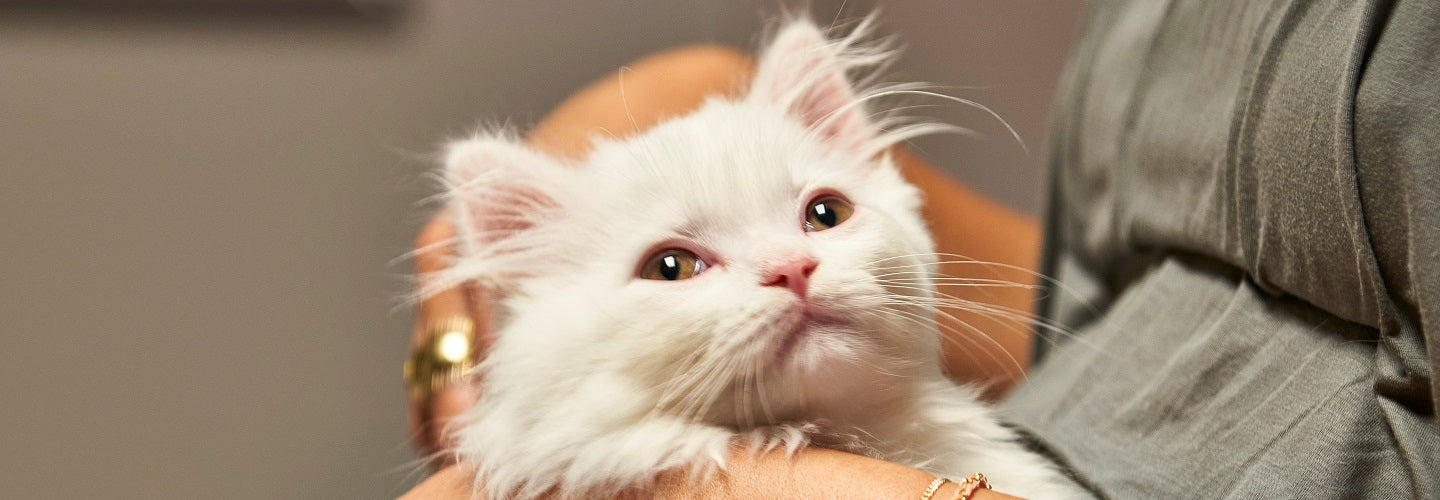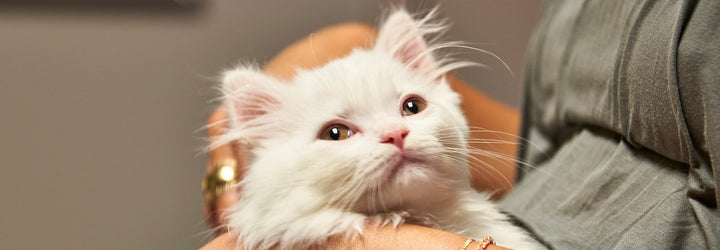

Posted by Emma Oldroyd, on
Tiny Paws: Taking Care of your Cat’s Teeth
According to Cats Protection, cats can suffer more commonly with their teeth than you might think as they’re particularly good at hiding the pain in their mouths.
By the time your kitten turns 6 months, they will have all 30 of their adult teeth ready for catching prey, chewing their food, and helping to defend themselves (if they become an outdoor cat).
Our experts have put together a quick guide on how to take the best care of your cat’s teeth and help them avoid trouble later in life.
Brushing your kitten's teeth
Introducing your kitten to a tooth brushing regime from an early age will help keep their teeth in good condition.
- Always use a specialist cat toothbrush and cat toothpaste
- Begin with positive association with your cat/ kitten by wrapping them in their favourite blanket to make them feel safe and secure- this will also reduce the possibility of getting scratched.
- Apply the toothbrush with bristles facing at a 45-degree angle, this will allow you to reach both the surface of their teeth and get in just beneath their gums
- Don’t take your time, keep tooth brushing short and sweet
- If your cat gets anxious, reward them with cat treat, after brushing (something like a paste or cream, so your cat uses their tongue to eat it)
Adding some crunch to their diet
Depending on your cat’s taste, adding in some dry, crunchy kibble to their diet can help combat plaque and tartar as your cat eats their meals. Some brands offer dental-specific recipes too, which help combat bad breath and potential gum diseases.
We would always recommend speaking to your vet about dental specific diets.
You can also pick up dental treats for cats! The (usually crunchy) treats can be given daily as part of their diet if they’re not a big fan of having their teeth brushed.
Avoid feeding you cat food and treats which are high in sugar, as this can erode enamel from their teeth and speed up tooth decay.

How can toys and enrichment help my cat’s teeth?
Certain toys can help your cat keep their mouths in good health. String, feathers, & interactive chasers act as a floss when your cat is playing with them, especially when they’re biting/chewing.
Interactive toys such as Lickimats, which encourage licking, can help keep the papillae on the tongue clean which can help alleviate bad breath.
How do I know if my cat is suffering with teeth problems?
Signs of potential dental problems in cats can include any of the following:
- Reduced grooming activity
- Bad breath
- Drooling
- Reduced appetite
If your cat shows any signs of the above, we recommend visiting your local vet for a check-up.
Looking for cat dental care? Check out our range of oral gels, cat toothpaste and more. You can also speak to one of our pet experts in-store or via Pets Chat.
